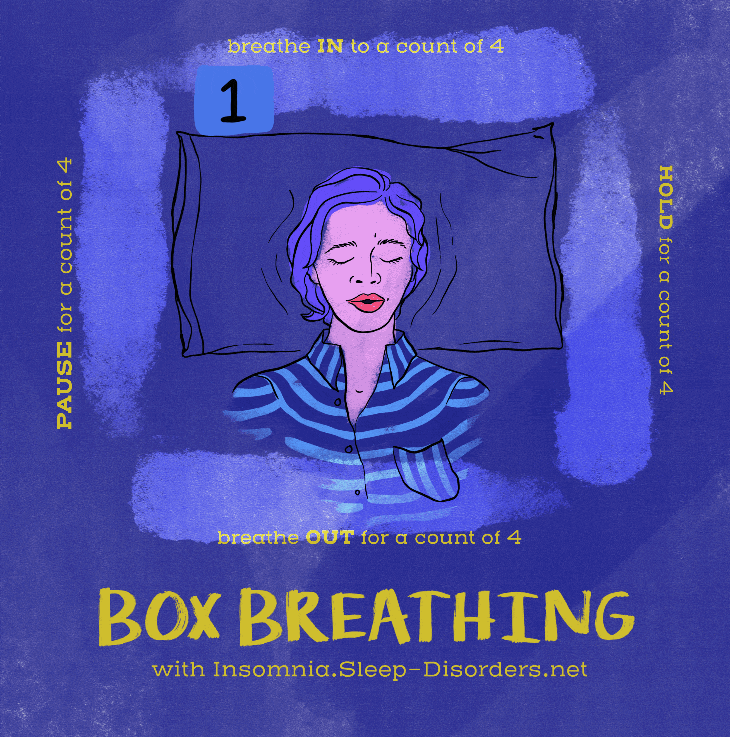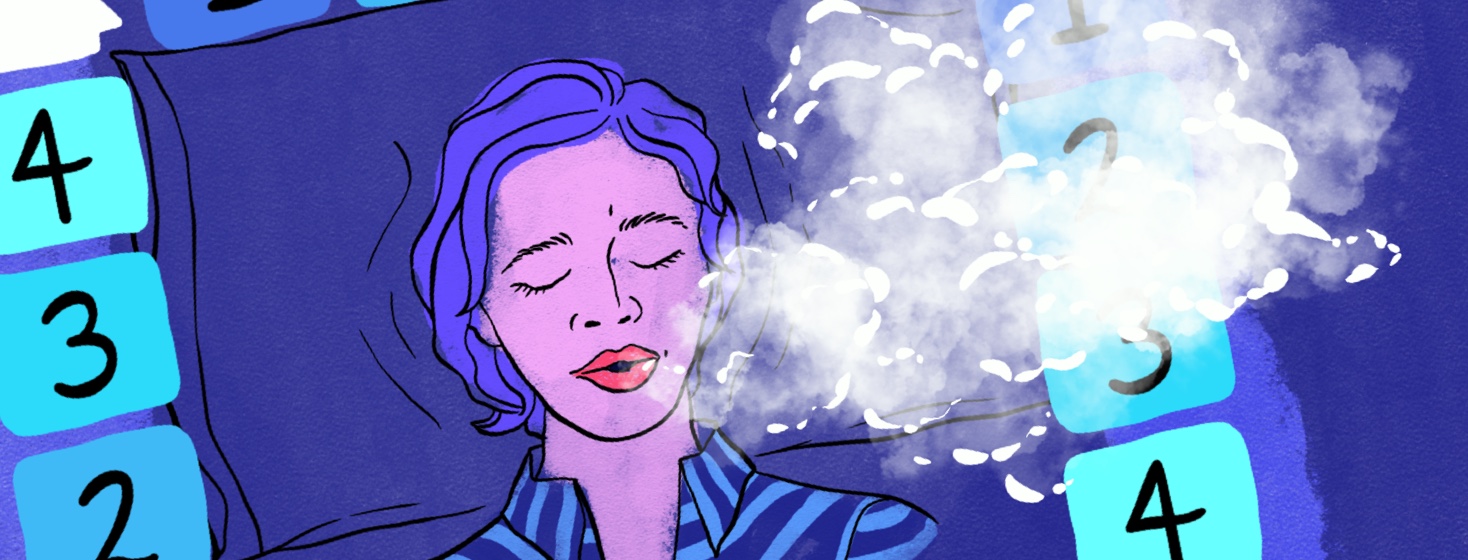Try Box Breathing for Insomnia
When tension and anxiety lead to insomnia, relaxation techniques can help. These therapeutic physical exercises decrease symptoms of stress both physically and psychologically.1
Relaxation techniques are typically used in therapy. But now doctors are using the techniques as well because they can help to address symptoms linked to stress, such as:1
- Shortness of breath
- Higher levels of cortisol
- Muscle tension
- Increased heart rate
When and how to use box breathing
There are many types of breathing exercises. Box breathing can be particularly helpful for relaxation. You can use it:1
- When trying to calm down for the evening
- After a stressful experience
- Simply as a regular healthy practice
Like all healthy habits, the more you practice box breathing, the better your chances are of reducing stress-related symptoms.1

(Click here for a static Box Breathing image to share or save.)
Box breathing
Find a comfortable position. It isn't necessary to be in a totally quiet or calm environment. When going through these steps, visualize a box with 4 equal sides. You can trace the shape of a box with your finger while you breathe.1
- Begin by closing your mouth. You will inhale through your nose, tracing your finger up 1 side of the box while counting to 4 silently in your head. With each number, fill your lungs a little bit more.
- As you trace your finger along the top of the box, hold your breath while counting to 4.
- As you trace your finger down the other side of the box, exhale while counting to 4. Try to push all the air out of your lungs as you count.
- As you trace your finger along the bottom of the box, slowly exhale through your mouth until you feel like you’ve completely emptied your lungs of air.
- Repeat until you feel more calm.
Who are these exercises for?
Breathing exercises can help to increase calm and decrease stress and anxiety. But they are not a cure-all for insomnia symptoms. Their effectiveness depends on the root cause of your insomnia. Things that can cause insomnia include:
- Another sleep disorder or health condition
- Side effects of certain medicines
- Changes in your schedule or environment
Consult with a doctor to get help addressing the root cause of your insomnia.

Join the conversation